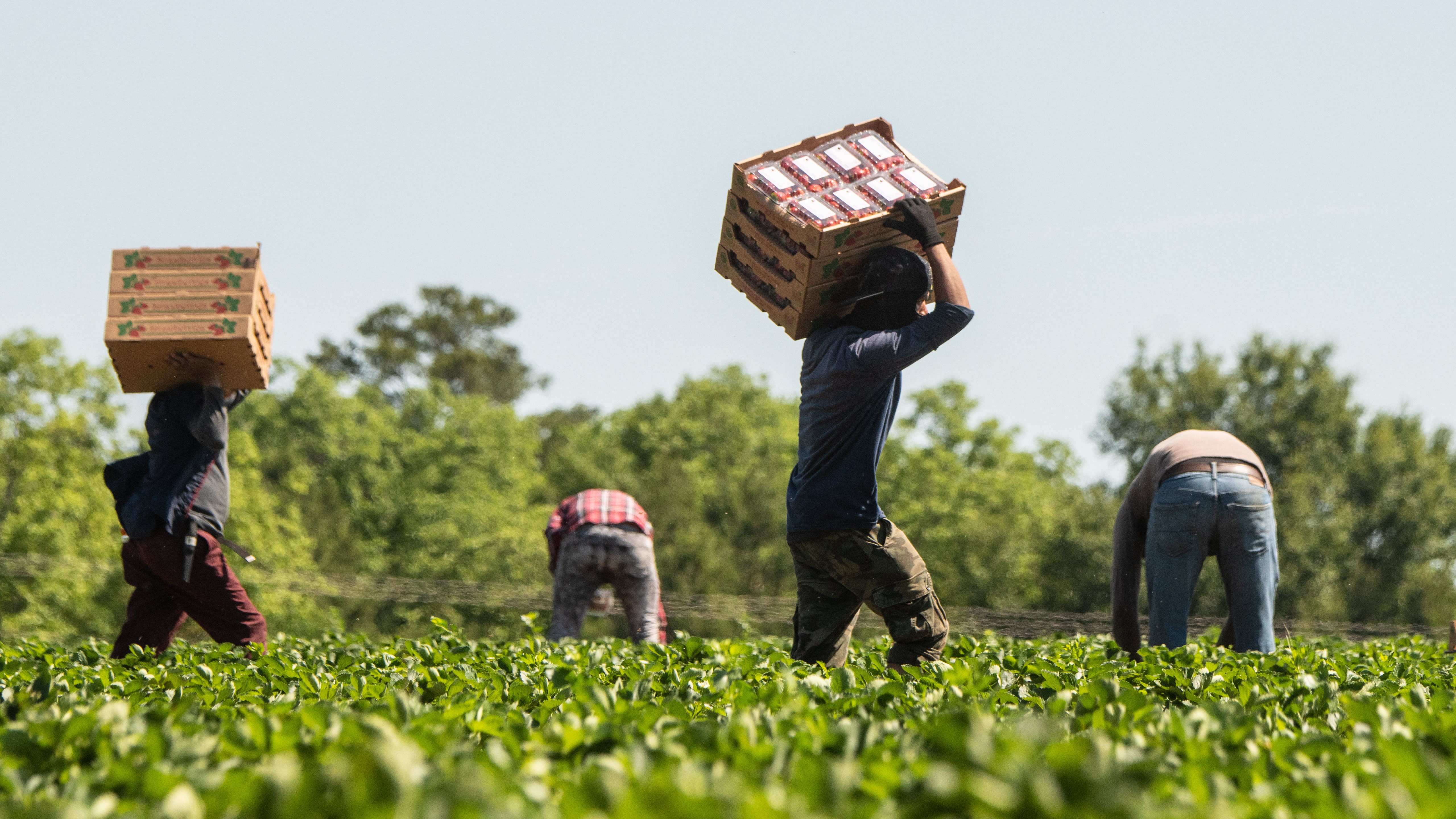Liz Turner is a law student in the HLS Food Law & Policy Clinic and a guest contributor to this blog.
On February 28th of this year, the USDA Equity Commission released an Interim Report, recommending steps the USDA should take to remedy existing disparities in its policies and programs and reconfigure the agency culture and systems that have perpetuated those disparities. The Equity Commission was launched in February 2022 following an Executive Order On Advancing Racial Equity and Support for Underserved Communities Through the Federal Government issued by President Biden in January 2021 and subsequent funding through the American Rescue Plan in March of 2021. The Commission consists of a group of “agriculture industry members, experts, and advocates,” including representatives from farmworker groups. While the Commission’s interim recommendations are wide-ranging, the Farm Bill Law Enterprise (“FBLE”) was gratified to see that a significant section of the Interim Report targeted improvements that USDA could make to better support farmworkers, which, as the report describes, “are often not directly served, protected, nor eligible for programs, services or benefits provided to the larger agricultural community due to immigration and labor laws, inequitable structural incentives and barriers, and lack of inclusion.”
Many of the Equity Commission’s recommendations mirror those that FBLE put forward in our Farmworkers report, released in the summer of 2022. Some key points of commonality between the two sets of recommendations include:
- Elevate the USDA’s Farmworker Coordinator role to a senior official with dedicated staff and resources. A Farmworker Coordinator position technically exists at USDA, but the current Farmworker Coordinator fulfills many additional roles and does not have access to much institutional support for farmworker-related activities. The Equity Commission recommended that the Farmworker Coordinator be elevated to a “senior official with dedicated staff (career or political) with decision-making authority and access to senior level officials and the resources needed to serve farmworkers, their families, and the organizations that serve them.” In the FBLE report, we recommend modeling a future farmworker office on the USDA Office of Tribal Relations, which serves as a “single point of contact for Tribal issues and works to ensure that relevant programs and policies are efficient, easy to understand, accessible, and developed in consultation with the American Indians and Alaska Native constituents they impact.” Developing a similar office for farmworkers would allow the USDA to develop expertise on the issues facing farmworkers, provide important representation for farmworkers within the Agency, and serve as a point of contact for other agencies whose mandates also touch farm labor, such as the Department of Labor and the EPA.
- Condition participation in USDA grant, loan, and procurement programs on compliance with federal labor law and, in some cases, with heightened standards for workplace safety and farmworker working and living conditions. The Equity Commission recommended that participation in USDA programs, particularly those programs that benefit producers in their capacity as employers, be conditioned on general compliance with federal labor law and, in some instances such as USDA procurement, comply with “high road” employer standards such as “collective bargaining and other metrics for improved workplace protections…” In FBLE’s recommendations, we identified specific opportunities for Congress to impose similar conditions, such as amending the Agriculture Acquisition Regulation to grant certain benefits to employers who engage in collective bargaining with workers or who participate in a Worker-driven Social Responsibility program such as the Fair Food Program.
- Increase support for farmworkers in USDA disaster relief programs. Both the Equity Commission and FBLE identified the need for specific support for farmworkers in existing USDA programs that provide a significant safety net for farmers in the wake of major crises such as pandemics, natural disasters, and climate change-related weather events. Critically, the Equity Commission and FBLE both recognize that USDA programs meant to support farmworkers should direct funding to the farmworkers themselves, and community-based organizations that support them, rather than to producers/employers or to farm labor contractors.
- Improve the accessibility of USDA’s land transition programs to historically underserved groups, including farmworkers. The Interim Report identifies farmworkers as one of several groups currently underserved by USDA’s land access and land transition programs. The Equity Commission recommends giving priority for funding through “land-related” programs to historically underserved groups, including farmworkers, and particularly recommends expanding eligibility for such funding to entities including nonprofit organizations and collective and cooperative groups. This recommendation echoes FBLE’s recommendations to update the eligibility guidelines for FSA programs, including the Transition Incentive Program and the Land Contract Guarantee Program, to expressly include cooperative or collective farmworker groups.
While many of these changes are possible to make at the administrative level, the USDA has published a reply to the Interim Report that ignores many of the Equity Commission’s most pressing farmworker recommendations. The 2023 Farm Bill, therefore, presents an exciting opportunity to pass the most critical of these recommendations into law, thereby mandating a significant shift in USDA’s relationship to farmworkers, a uniquely vulnerable—and critically important—constituency in our food system.
The views and opinions expressed on the FBLE Blog are those of the authors and do not necessarily reflect the official policy or position of FBLE. While we review posts for accuracy, we cannot guarantee the reliability and completeness of any legal analysis presented; posts on this Blog do not constitute legal advice. If you discover an error, please reach out to contact@farmbilllaw.org.


